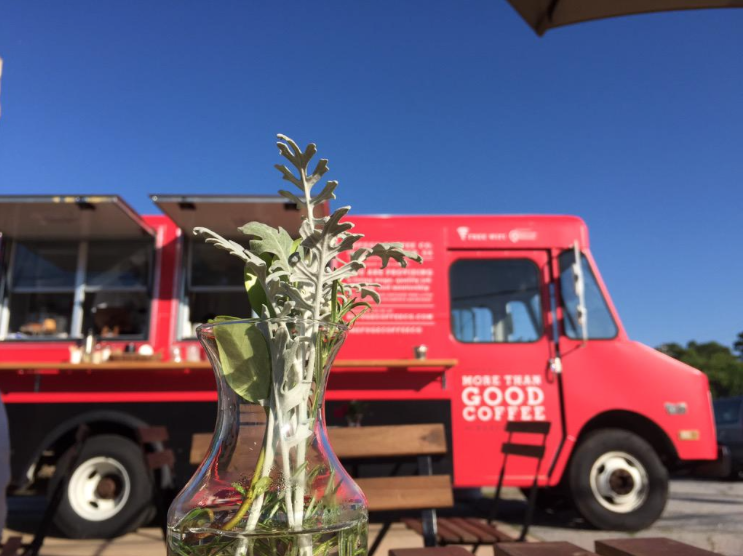 Over the past few years, you may have read stories like this Wall Street Journal article about the ongoing battle between food trucks and restaurateurs. The basic premise of the hundreds of stories written over the past half decade is typically the same: Restaurant owners want to restrict the number of food trucks in the area and to prevent competition. Food truck owners, on the other hand, want less restrictive laws that will allow them to vend when and where they want.
Over the past few years, you may have read stories like this Wall Street Journal article about the ongoing battle between food trucks and restaurateurs. The basic premise of the hundreds of stories written over the past half decade is typically the same: Restaurant owners want to restrict the number of food trucks in the area and to prevent competition. Food truck owners, on the other hand, want less restrictive laws that will allow them to vend when and where they want.
While this animosity between restaurants and food trucks may have been the case a few years ago, this is not the 2017 environment. In fact, there are many restaurant owners that now want to relax regulations for food trucks. Here are three reasons why this has changed.
Top Three Reasons Restaurant Owners No Longer Want Restrictive Food Trucks Laws
When gourmet food trucks first broke onto the scene during the Great Recession around 2007 – 2008 these businesses we’re often started by bootstrapping entrepreneurs. These new mobile food units often shook the existing restaurant industry that feared loss of business and unfair competition from businesses that had less overhead, no fixed location, and didn’t need to operate under the same rules.
A lot has changed since the great recession though. Jobs have returned and the stock market is at all-time highs. Also, many of the restaurants that were once fearful of food trucks, have begun to embrace these vehicles for there own benefits.
Reason Number #1: Restaurants Getting Food Trucks
Restaurant owners have joined the party and started to invest in their own food trucks over the past couple of years. This allows restaurants to take advantage of all the benefits and vending opportunities of a mobile food unit, while maintaining the benefits of a fixed location.
One of the customer we had the privilege building a truck for at M&R Specialty Trailers and Trucks, is the burger and shake joint MShack. MShack paid about $60,000 for their food trailer within the first 12 months operating the trailer had done over $300,000 in sales. That’s over a 4 to 1 return in year one.
From an investment perspective, if you already own a restaurant brand with multiple locations, you’ve already put well north of $1 million dollars in capital into your business. Adding a food truck for less than a $100,000 is a no brainer, low risk investment.
Benefit #2: Food Truck owners are Starting Restaurants
Cross pollination between these two groups of business owners have continued with more mobile food vendors are starting restaurants. After starting a successful food concept and proving the business, the next logical step has been to build a permanent location. There are too many examples of businesses making this transition to mention here, but here are a few examples of restaurants that started as food trucks: The Peached Tortilla, Curry Up Now, and Korilla BBQ.
As more food trucks become restaurants, there is increased understanding within the community when this happens.
Benefit #3: More Revenue for Restaurants
There are many advantages for restaurant owners that we won’t fully examine in this post. But some of the advantages are promotional. A food truck is a essentially driving billboard for your restaurant that can be taken to major events in your city to introduce new customers to your food.
They can be used to book more lucrative catering events for weddings or corporate lunches. Some restaurants make as much as half of their annual revenue from catering events so the additional revenue boost from a mobile food truck can help the bottom line in a significant way.
As a result of each of these factors listed above there’s also more of an understanding between this group of people that has developed over the years. Part of this has been achieved through greater awareness of what a food truck is, but also working together in the same ecosystem for a number of years. Over the next half decade, we expect more cross pollination between these two types of business owners and a push for more relaxed food truck laws among restaurateurs.
